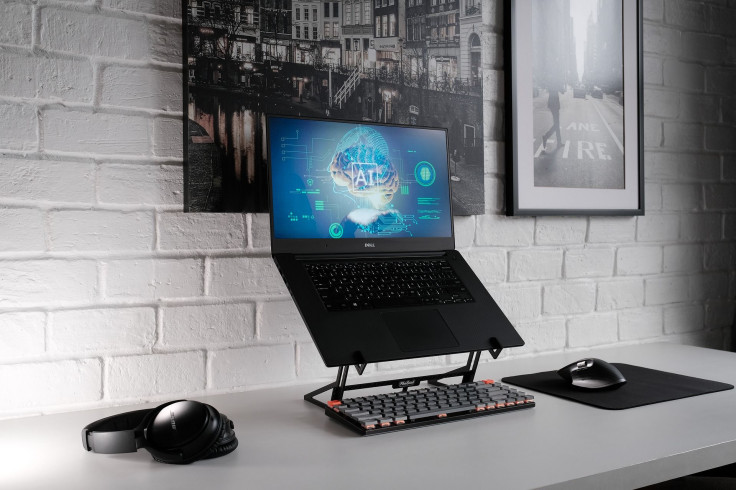US Employees Concerned Over Use Of AI In Hiring, Evaluating Performance: Study
KEY POINTS
- 32% of respondents think AI will "hurt more than help" employees
- A little over 50% oppose the idea of using AI data to decide which employees should be fired
- 35% of employers said in a survey that they would use AI for decision-making
American workers are concerned over future implication of artificial intelligence in workplaces, particularly to hire, fire or assess the performance of employees, a new study found.
Majority of U.S. employees surveyed by think tank Pew Research Center expressed opposition to the use of AI "in making final hiring decisions" in a report published Thursday. The survey found that majority of American workers are against the use of AI systems in tracking their movement at workplace or monitoring whether employees were at their desks or not.
Americans strongly oppose some possible applications of AI by employers, but are more supportive of others. https://t.co/nmtdsTzmA5 pic.twitter.com/ipZqDoEF1P
— Pew Research Center (@pewresearch) April 20, 2023
Of 11,004 American adults surveyed by Pew Research between December 12-18, 2022, 32% said they think AI will "hurt more than help" employees in general, while 22% said they weren't sure.
The survey also found about six in 10 Americans believe AI will have a major effect on workers in the next 20 years, and 56% of the respondents said they believe AI will impact the U.S. economy.
By a 55% to 14% margin, respondents opposed companies' potential use of AI-collected and analysed data about employees' performance at work "to decide whether someone should be fired from their job."
Of the thousands surveyed, 66% of the respondents expressed resistance in applying for a job at the company where AI will be used to make hiring decisions and only 32% said they were interested in the prospect.
"Overall, larger shares of Americans don't believe AI use in workplaces will significantly affect workers in general, but far fewer believe the use of AI in those places will have a major impact on them personally," the report said.
66% of Americans say they would NOT want to apply for a job with an employer that used AI to help make hiring decisions; 32% say they would want to apply for a job in this situation. https://t.co/BDmHgtvgKf
— Pew Research Center (@pewresearch) April 20, 2023
The study's findings came as more companies across the U.S. embrace the use of artificial intelligence in the workplace, noting that the technology proves helpful in diverse hiring, Fortune reported.
However, there have been instances wherein AI didn't help in the hiring process, as was the case with Amazon, when its specialists found in 2018 that the e-commerce giant's secret AI-based recruiting engine was biased against women, according to Reuters. Five people with knowledge of the situation told the outlet that the AI hiring tool was supposed to give applicants scores ranging from one to five stars.
"Amazon's system taught itself that male candidates were preferable," Reuters wrote at the time. Even as the company adjusted its programs to ensure that the programs were gender neutral, there was no guarantee that the AI hiring tool would not resort to discriminatory ways in sorting potential candidates, sources added.
Earlier this year, 35% of U.S. employers said in a Capterra survey that they would rely mostly or solely on AI-compiled data for workplace decision-making, and 98% of American employers surveyed said they would use algorithms and software to cut costs in 2023.
"The focus of that has been on helping make hiring decisions, retention decisions, and even advancement within the workplace decisions," said Disrupt HR employment attorney Zack Bombatch, as per CBS News.
While some believe that AI can help lighten the workload of HR departments, critics have warned against depending on AI-collected data.
Some tech experts also raised concerns about AI recruitment or assessment tools potentially picking up on "pre-existing human biases," according to Business Insider. There are also fears that tech-driven evaluations that aren't "done very carefully and thoughtfully" may pose problems in the long run, according to Aaron Rieke, managing director at nonprofit Upturn.
Concerns over potential negative impact of AI in the corporate sector have come as the tech industry grapples with continual job cuts. In January, Google employees affected by mass layoffs reportedly speculated about the reason they were terminated from the company.
Laid off Google employees hinted at the use of "mindless algorithm carefully designed not to violate any laws" by the search engine giant to determine which workers should be let go, Washington Post reported February.
Google has since denied the speculations, stating that "no algorithm" was involved in its decision-making regarding layoffs that impacted about 12,000 employees.

© Copyright IBTimes 2025. All rights reserved.






















